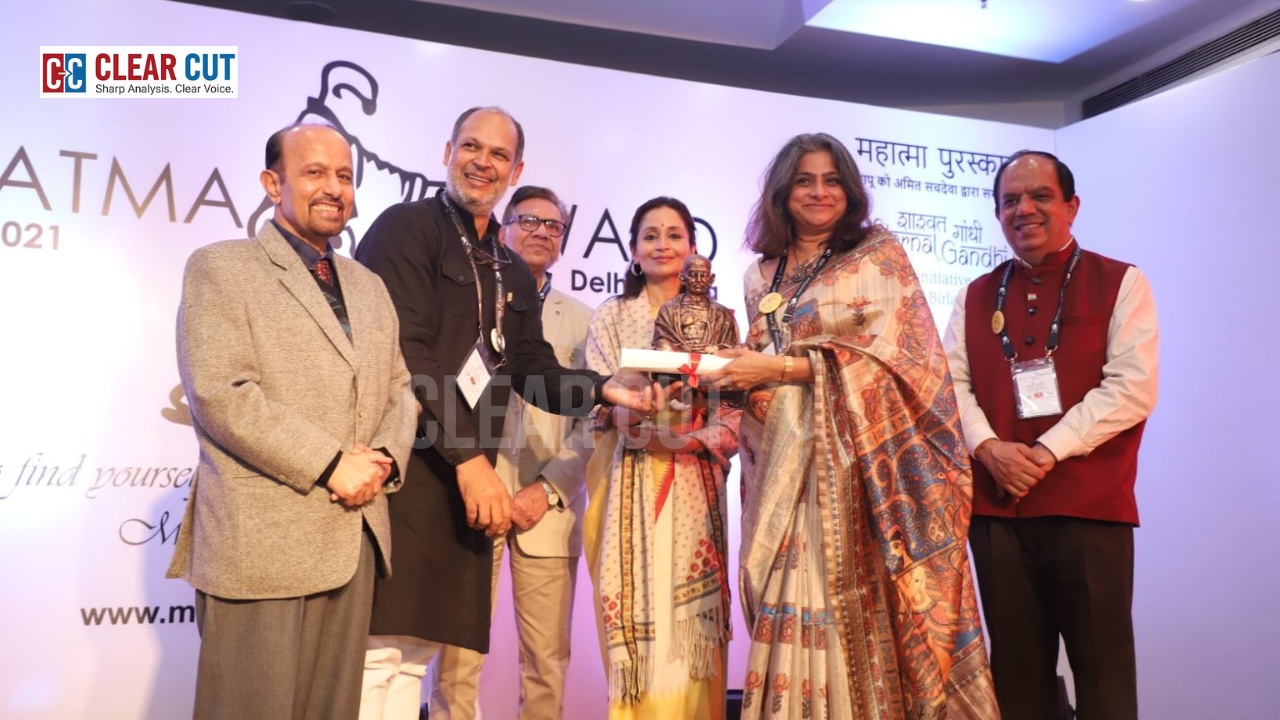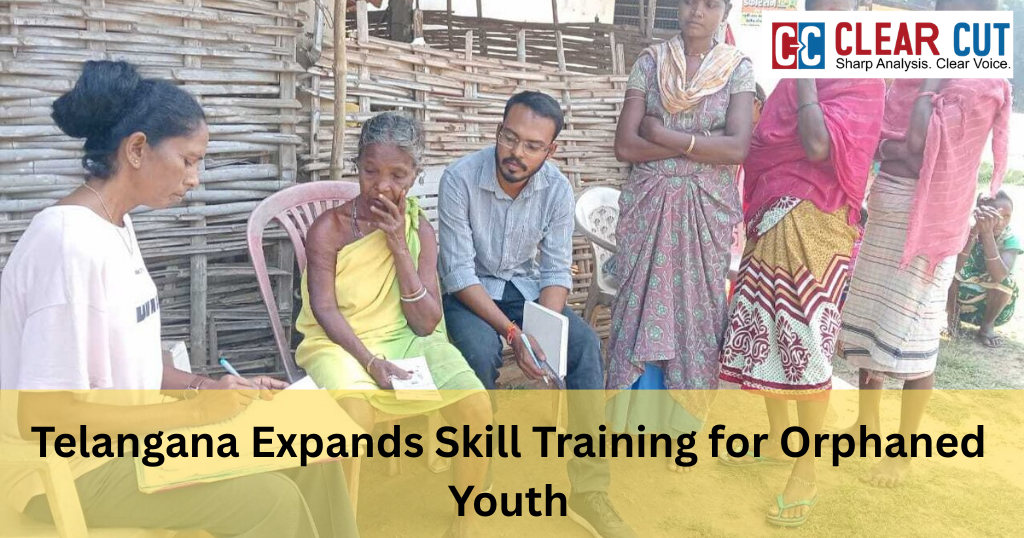Photo Credit: Antara Mrinal
Clear Cut Education Desk
New Delhi, UPDATED: Sep 05, 2025 04:43 IST
Written By: Antara Mrinal
In the corner of administration and the modest classrooms of rural India, unsung heroes are redefining the idea of service. They are not greeted with any great fanfare, nor do they ask for any recognition. Rather, they are silent laborers: bureaucrats who straddle the line between governance and mentorship, and teachers who cultivate not just minds, but entire populations. Their work shows that leadership is not about power, it’s about understanding, character and the courage to act.
From Classrooms to Communities: The Transformative Vision of Debajit Ghosh
In Assam’s rural tea garden belt of Dibrugarh, the determination of a teacher has changed the attitude of a community towards education and healthcare. Mr. Debajit Ghosh, a recipient of National Teacher’s Award 2025, of Namsang Tea Estate (TE) Model School is not only a teacher, he is a mentor, an innovator, and a changemaker.
Committed to bringing learning to life, he put science in the hands of children and out of textbooks by launching a special exhibition in collaboration with the Vikram Sarabhai Space Exhibition (VSSE), Space Application Centre (SAC) and Indian Space Research Organization (ISRO). It was the first live glimpse of the magic of space and technology for most students, and in many instances, one that triggered curiosity and even curbed absence.
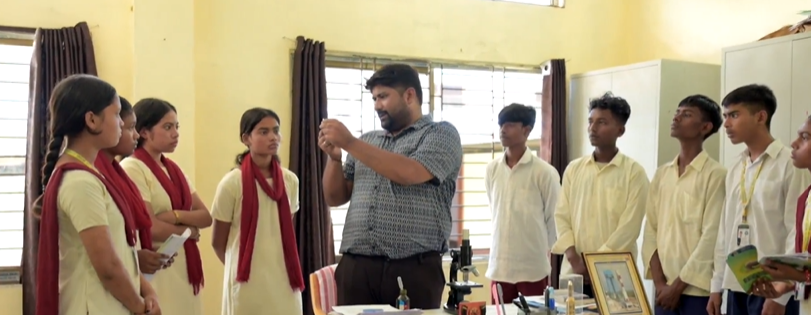
Among the picturesque tea gardens of Assam, Mr. Debajit Ghosh has turned teaching into more than just a profession, he is a mentor, building minds and bodies, and introducing children to how learning can unlock the door to a better tomorrow. | Photo Credit : x.com/eduminofindia
But Mr. Ghosh realized that education cannot sprout without health. Under the Pradhan Mantri Poshan Shakti Nirman (PM-POSHAN) programme, he added green leafy vegetables and essential supplements to school meals, which boosted the hemoglobin of 165 children directly. That ensured the children in school remained healthier, stayed longer, and had a sharper focus on studies.
His own leadership has also brought the academic level higher. High School Leaving Certificate (HSLC) marks soared from 78% to an awe-inspiring 90%, and sports and music became synonymous with the reason for motivation for the students, unlocking hidden abilities outside the classroom. Mr. Ghosh’s journey is a testament of all-round development, where education is not only about examinations, but about developing young minds and bodies, building confidence, and developing ambition in a community that had cried out for opportunity before.
Roots in Green: The “Tree Teacher” of Rajasthan
In the barren deserts of Barmer in Rajasthan, a lone teacher has made it his life’s mission to spread the message of environmental stewardship. Bheraram Bhakhar, a science teacher, has been planting indigenous trees for over two decades to counter desertification. Since 1999, he has been contributing a month’s salary every year, which is roughly ₹90,000 today, toward saplings and campaigns aimed at raising awareness.
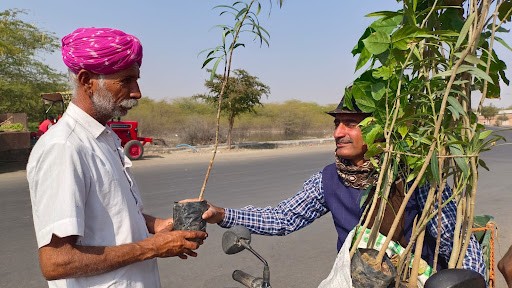
In Rajasthan’s deserts, where living was a battle, Bheraram Bhakhar planted not only trees but hope, and demonstrated how the vision of one teacher could turn parched land into a living school of green. | Photo Credit : indiaworldview.com
Thanks to Bhakhar, who has stumped across thousands of kilometers, and initiated Family Forestry and the Great Tree Rescue are the campaigns to promote our earth. His ambitions go further than simply planting: he envisages a “Tree Pension Scheme” that would protect ancient trees as heritage. His lessons around the blackboard are on ecosystems, but his real classroom is the desert that taught him how much life could retain its foothold, how so many saplings could stand witness to how green things often are survivors.
Bureaucrat by Day, Mentor by Night
Away from power corridors in Delhi, Asfaque Laskar, a young bureaucrat of Bajali district in Assam, spends his evenings teaching civil service aspirants for free, not even a rupee. His coaching fills a void in an area where coaching is not available to many. In overcrowded rooms and drab halls, eager aspirants congregate not just to learn exam tactics, but also self-confidence.
Vigilantes of Learning: UP’s Khaki-Clad Teachers
In Uttar Pradesh, classrooms can sometimes don uniforms, of a different sort. Cops, the enforcers of power, have turned themselves into the mentors of today’s most marginalized citizens. Senior Sub-Inspector (SSI) Apoorva Mishra teaches ragpicker kids at Khaki Ki Pathshala, a road side school which has touched over 2,00,000 lives since 1997. K. Satya Narayan from Indian Police Service (IPS) runs Samarpan, a coaching institute for competitive exams. Personally, the education of two dozen children is funded by commandant Niharika Sharma.
From Dropouts to Dreamers: Maharashtra’s Teachers
It is in Maharashtra that the winners of the National Teachers Awards 2025 encapsulate the power of education to transform lives. Mohammad Shaikh tackled school dropout rates in Nanded by renting out community halls to pursue education in Urdu-medium, and even distributing sanitary napkins to tackle menstrual stigma. Sandipan Jagdale created Braille music materials, translated books into Waddar, and composed a voter-awareness song, making education not only inclusive but creative. Sonia Kapoor of Mumbai has designed equally impactful projects. Collectively, they affirm the power of empathetic innovation.
A Legacy of Altruism: S. R. Sankaran
Even as yet there was no buzzword in Corporate Social Responsibility (CSR), S. R. Sankaran, the “People’s IAS Officer,” personified what governance was about. He battled bonded labor, negotiated peace when there were Naxalite uprisings, and stayed with struggles against manual scavenging. In keeping with his humility, he even declined the Padma Bhushan. Though he died in 2010, Sankaran continues to inspire bureaucrats who do not view their role as masters but servants of the people.
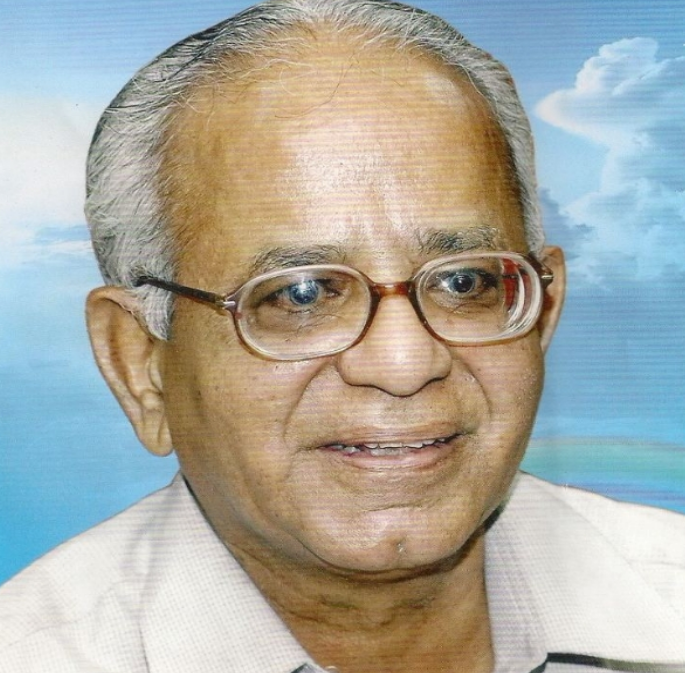
The ‘People’s IAS Officer,’ S. R. Sankaran lived a life of justice and dignity, establishing that governance is not in terms of power, but in compassion for the most weak among us. | Photo Credit: thebetterindia.com
Designing Classrooms in the Himalayas
Through Rajasthan’s deserts and Ladakh’s snow-covered mountains, the philosophy of service prevails. Sujata Sahu, a veteran schoolteacher, established the 17000ft Foundation to hope for some of India’s most isolated schools. With libraries, DigiLabs, play areas, and rigorous teacher training, she converted lonely classrooms into learning hubs. Her contributions have been awarded the Nari Shakti Puraskar and the Women Transforming India Award. But her biggest pay-out, she tells us, is to see children in mountain school libraries in villages open their first library book.
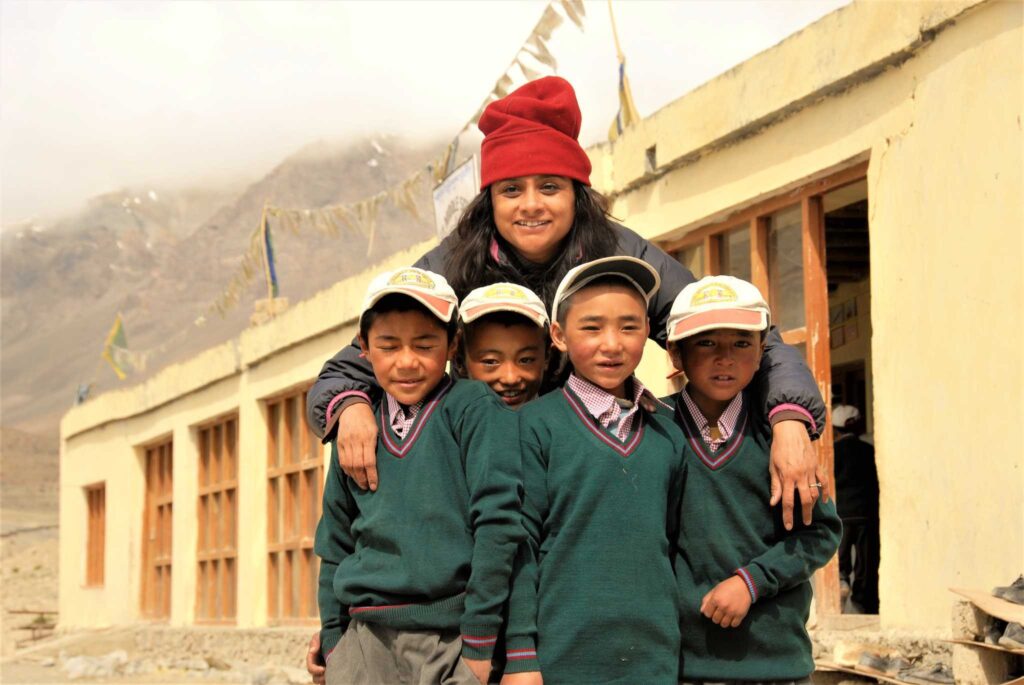
High in the distant Himalayas, Sujata Sahu has brought books, hope, and possibility to children in the most remote schools, converting solitude into inspiration through her 17000ft Foundation. | Photo Credit : scoonews.com
Why These Stories Matter
These stories are a reminder that change does not belong in the domain of budget or policy only, it originates from human will. Teachers and bureaucrats all over India are bridging the gap between grassroots care and governance, bringing classrooms to forests, streets, and flooded villages.
Their achievements are testament that leadership is deepest when it is unseen, when it elevates others without claiming credit. In each sapling nurtured, each girl educated, each child pulled from the streets, rests the silent revolution of India’s forgotten protectors.


